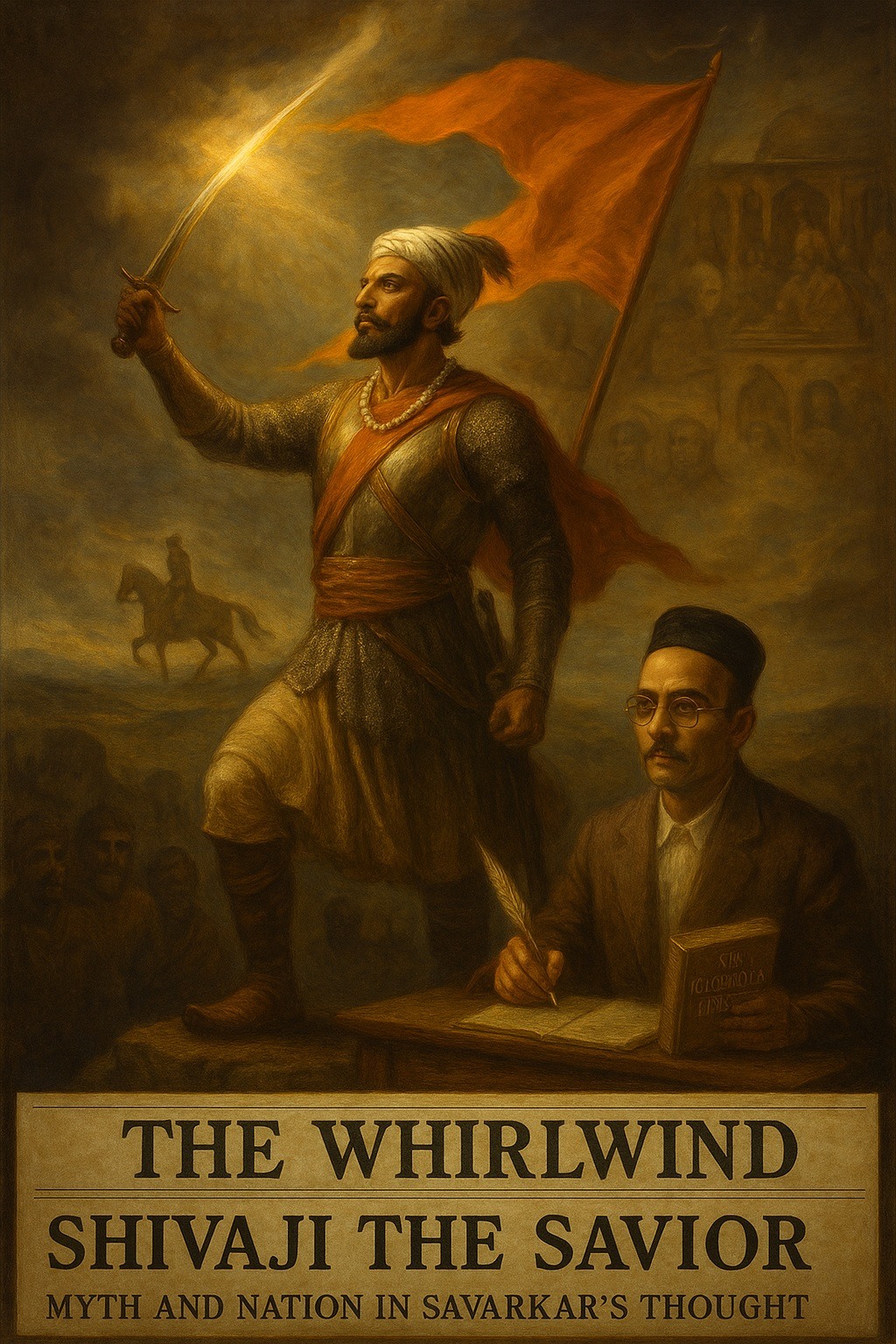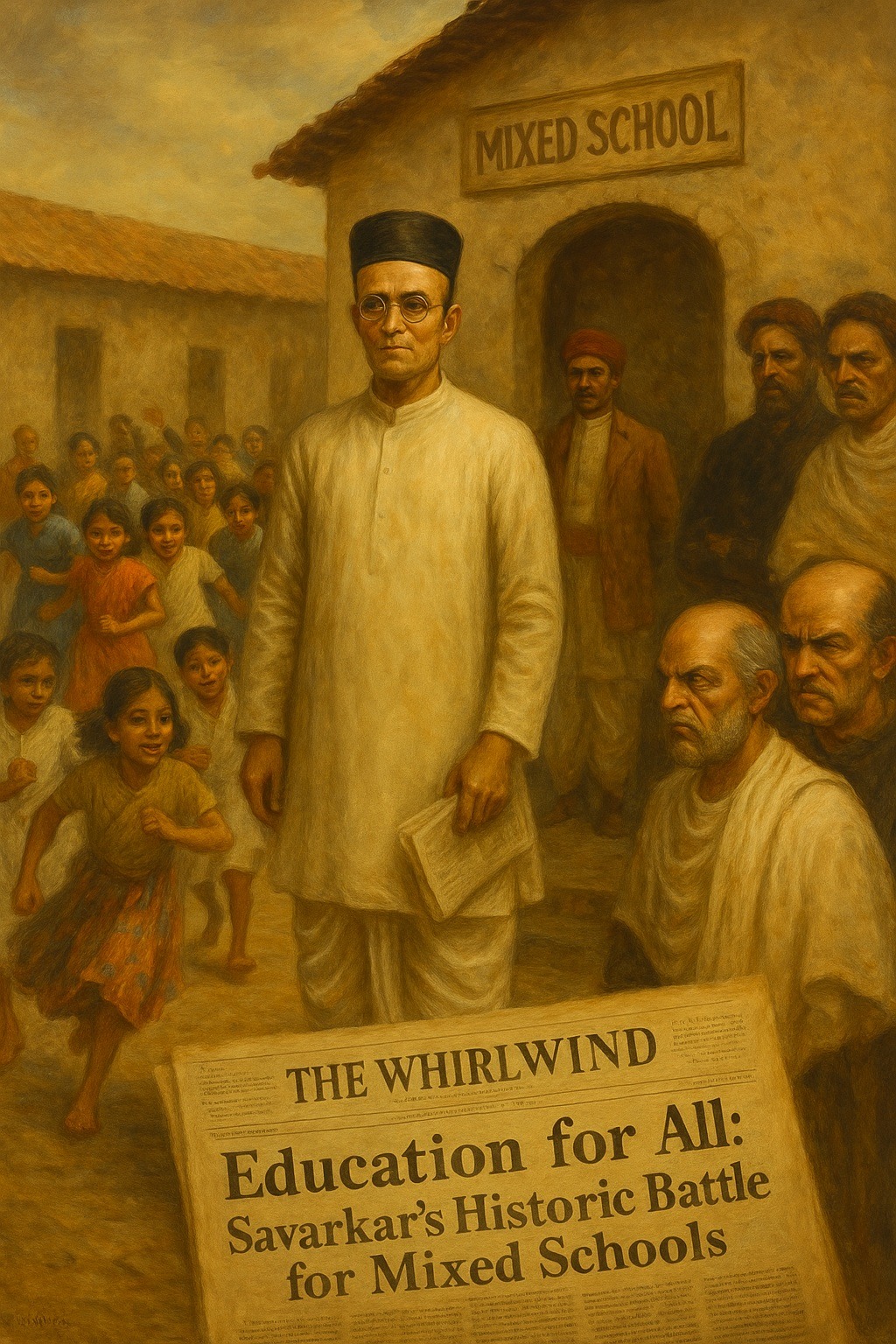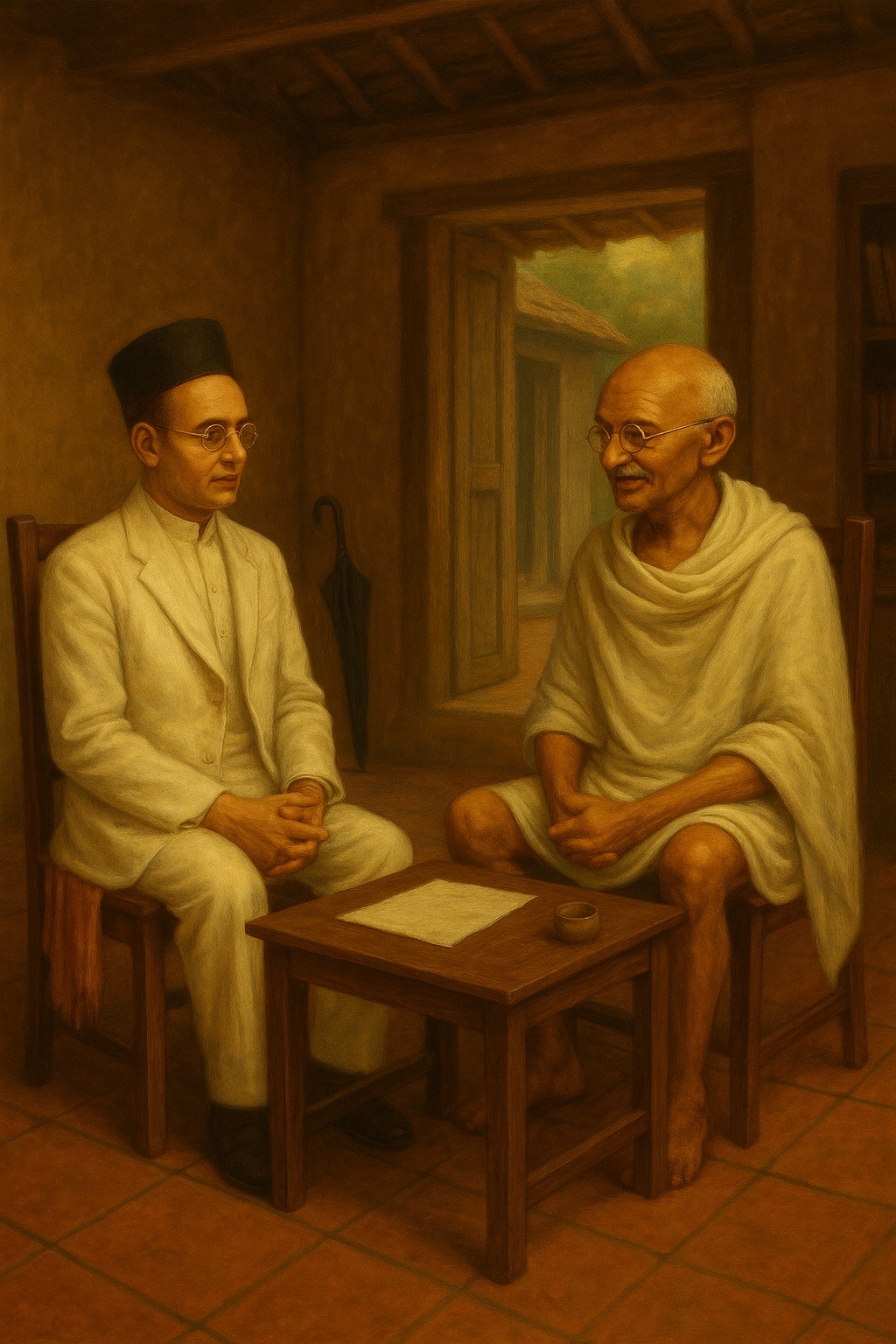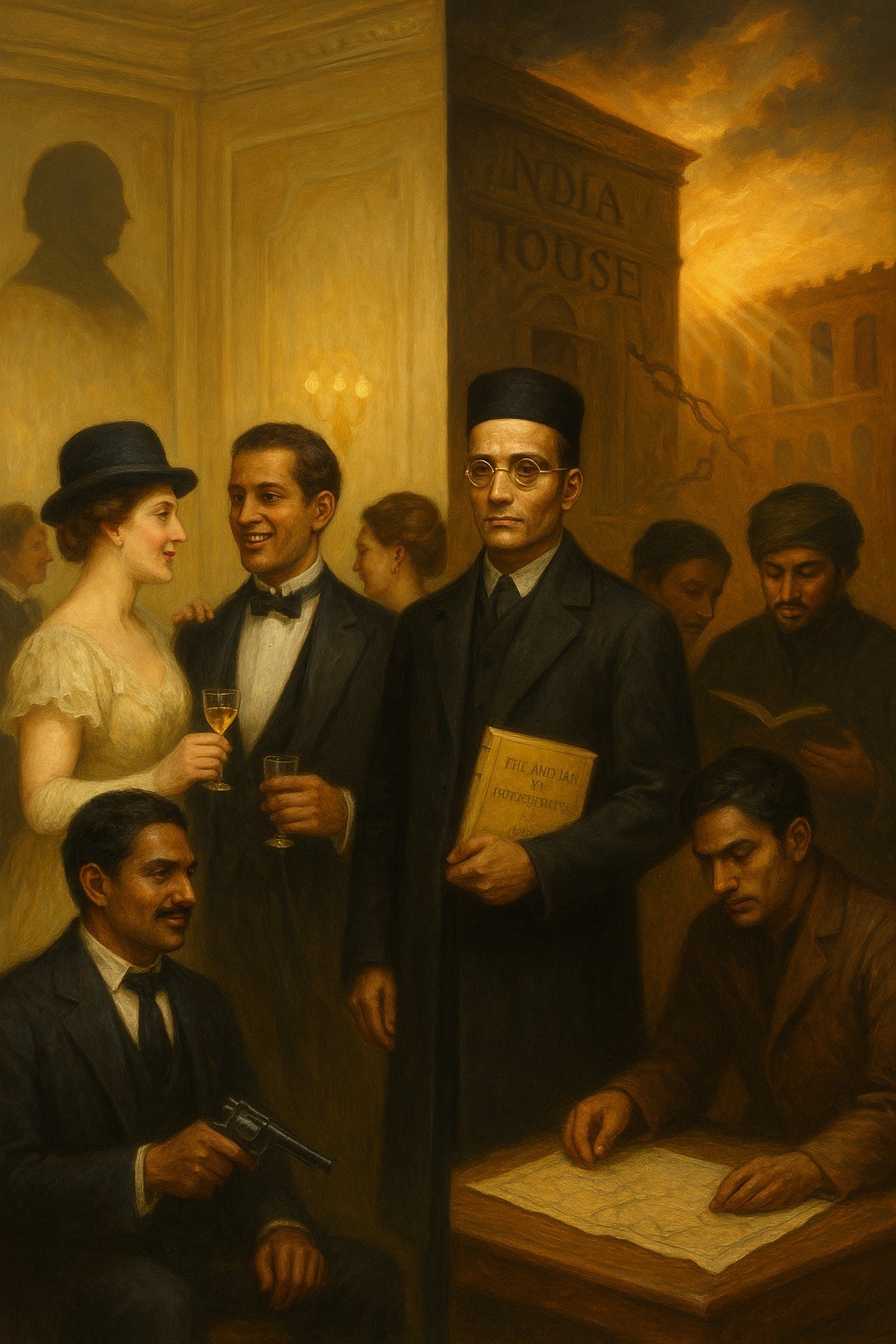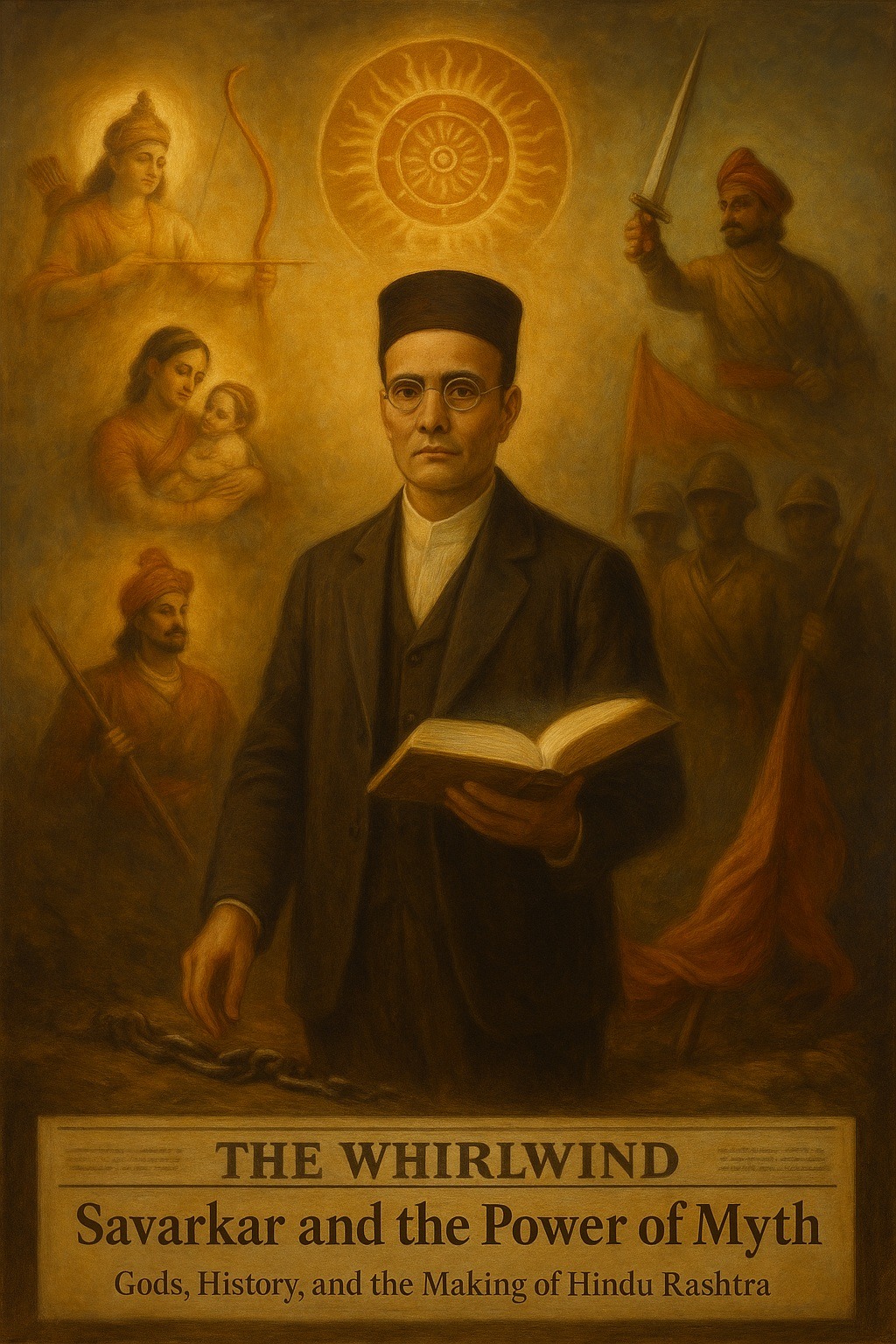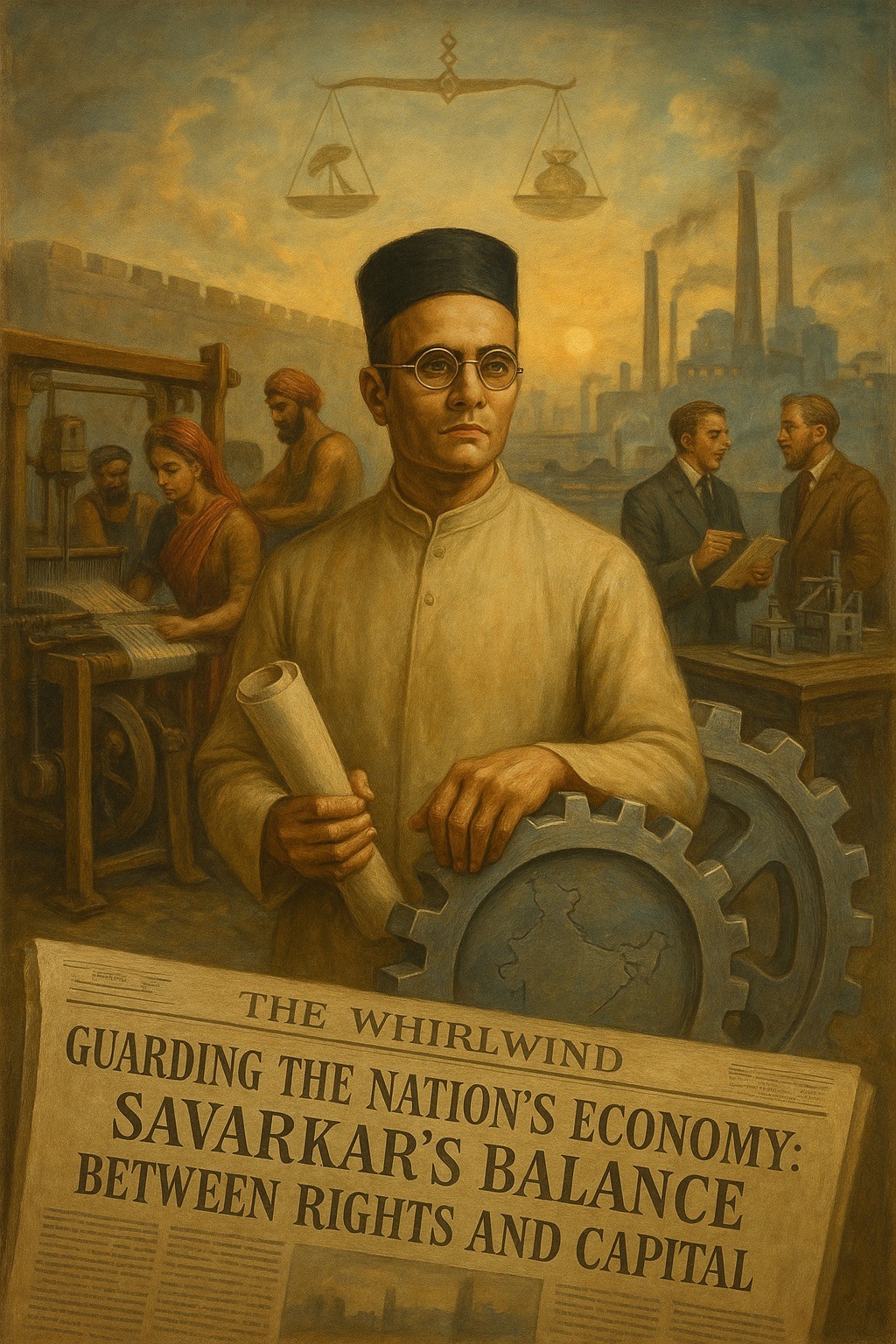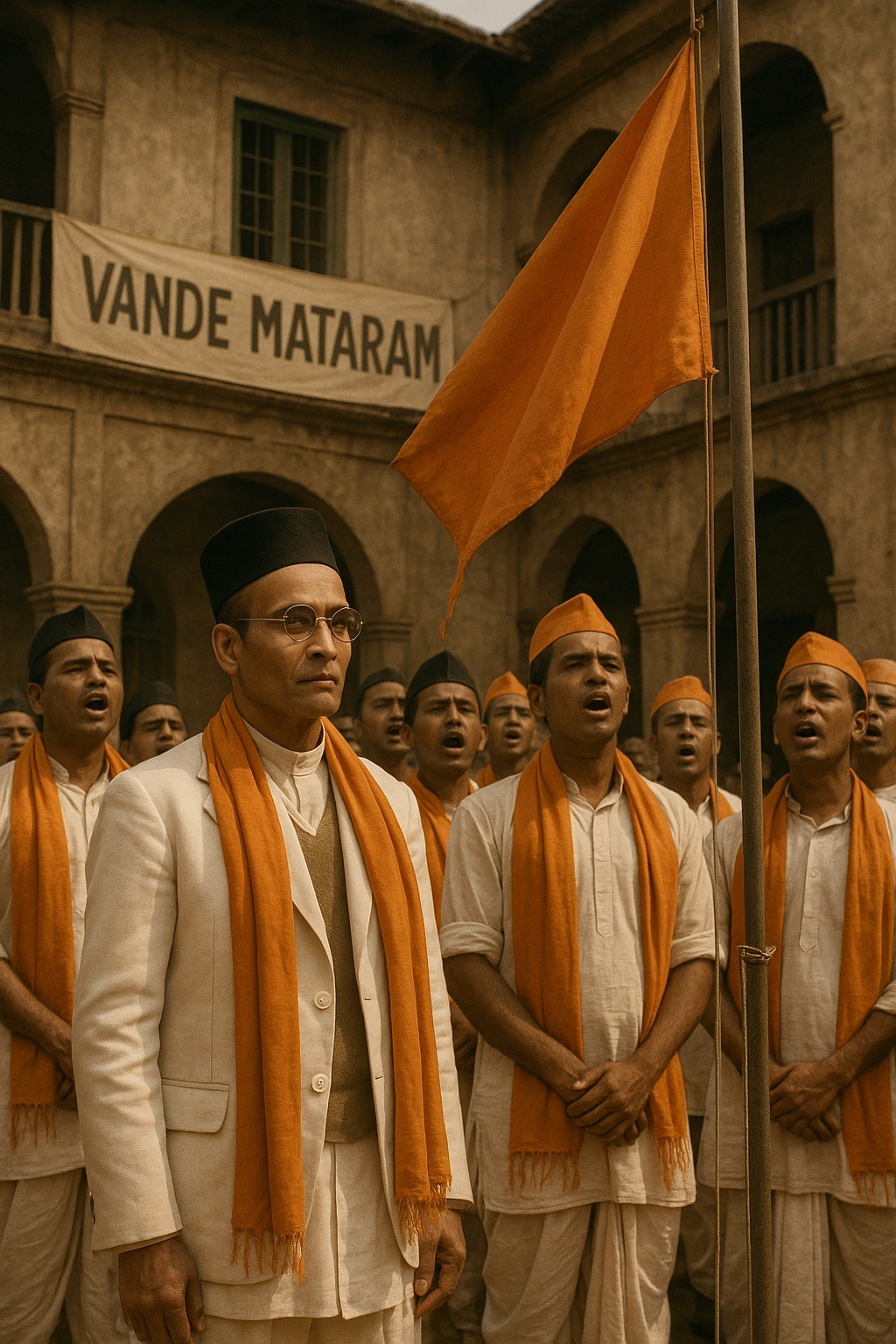Tag: SavarkarJayanti
-
Political Dimension of Hindutva, Part 13 Introduction – A Justification of “Relative Violence” Violence and non-violence have long been central themes in Indian philosophical and political thought. Vinayak Damodar (Veer) Savarkar, a key proponent of Hindutva, presented a unique discourse on the subject, arguing for a pragmatic approach to violence—what he termed “just, relative violence.”…
-
Savarkar’s Coding of Hindutva; Metacode Rashtra, Part 10; Code Myth (3/20); Codeelement Shivaji and Pan-Hinduism (1/15) Myth and Nation The German cultural theorist Andreas Dörner once argued that the most powerful idea modern societies use to hold themselves together is the concept of the nation. Without it, no state can sustain a sense of unity.…
-
Every year on October 2, India observes Gandhi Jayanti, the birth anniversary of Mohandas Karamchand Gandhi—revered as the Mahatma and remembered worldwide as an apostle of non-violence. Yet this day also invites a provocative question: if Vinayak Damodar (Veer) Savarkar were alive today, would he have commemorated Gandhi Jayanti? Respect Without Reverence It is conceivable…
-
Savarkar’s Coding of Hindutva; Metacode Rashtra, Part 9; Code Mythos (2/20); Codeelement Hindu Pantheon When we think of Vinayak Damodar (Veer) Savarkar, we often picture the fiery nationalist, the revolutionary in exile, or the thinker behind the idea of Hindutva. But one of the most fascinating aspects of his thought is how he used myth…
-
Savarkar’s Coding of Hindutva; Metacode Rashtra, Part 8; Code Mythos (1/20) When we hear the word myth today, we often think of stories that are not meant to be taken literally—legends with little claim to truth. Yet myths can do far more than entertain: they can inspire fascination, bind people together, and create a sense…
-
Economic Dimension of Hindutva, Part 10; Savarkar’s Economic Principles (6/13) Economic stability and national prosperity depend on a balanced relationship between industry, labor, and capital. In a thriving economy, workers should fairly partake in the profits of the industry. However, in times of economic downturn, just as capital suffers losses, workers too must be prepared…
-
Every year, 7 September is observed as Vande Mataram Day, commemorating the pivotal role of this iconic song in India’s struggle for independence. The date recalls the decision of the Indian National Congress (INC) in 1905 to adopt Vande Mataram at the height of the Swadeshi Movement against the Partition of Bengal. More than a…


